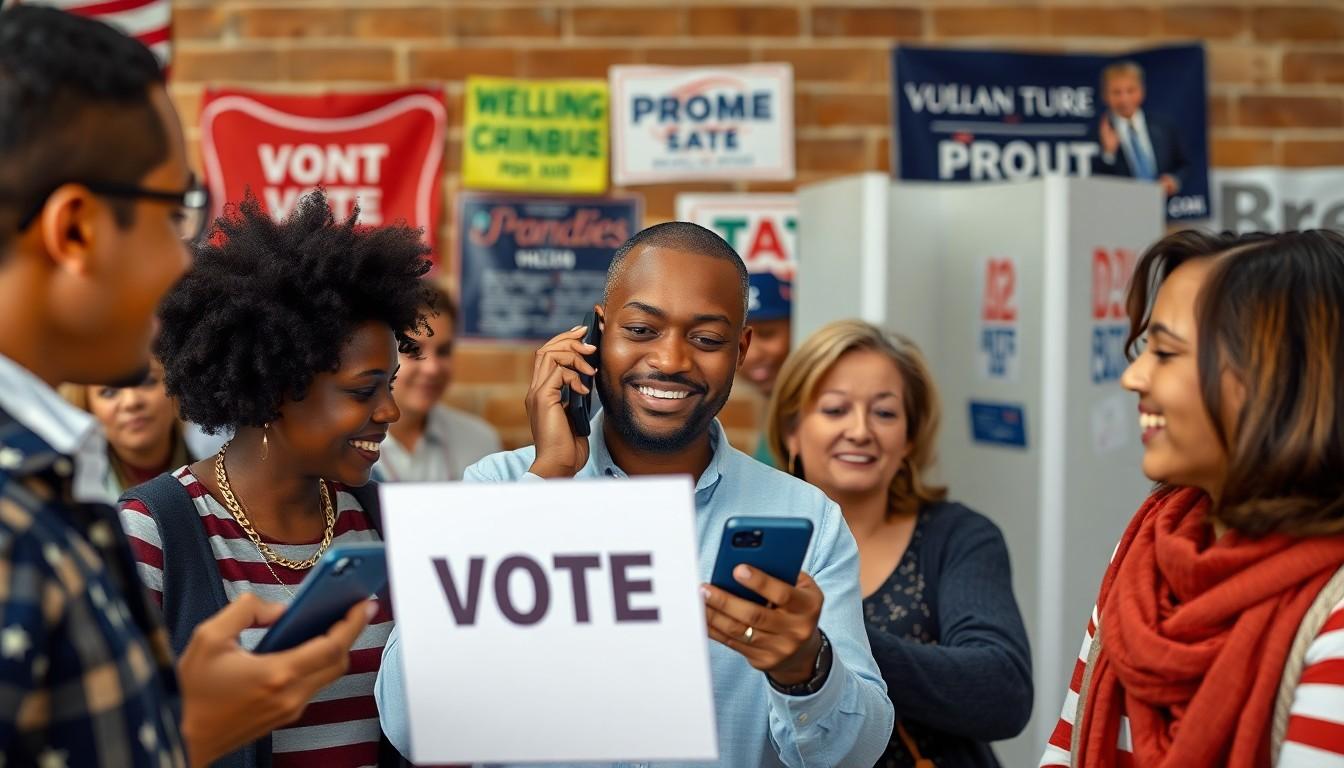Phone:
(701)814-6992
Physical address:
6296 Donnelly Plaza
Ratkeville, Bahamas.

In a world where political debates can feel like a high-stakes game of dodgeball, understanding what a political call is can be your secret weapon. Imagine getting a phone call that’s less about small talk and more about the fate of your favorite pizza toppings—seriously, it’s that important! Political calls are the lifeblood of campaigns, rallying supporters and spreading the word faster than a cat meme goes viral.
But don’t worry, it’s not all doom and gloom; these calls can be entertaining too. They might just be the only time you get to hear a stranger passionately discuss why your vote matters while you’re half-heartedly trying to remember if you left the stove on. Dive into the world of political calls and discover how they shape elections, influence policies, and maybe even give you a chuckle or two along the way.
Political calls play a crucial role in shaping public opinion during elections. These calls deliver important information while engaging voters directly.
Political calls refer to phone communications made by or on behalf of political candidates or organizations. They often aim to educate voters about policies, candidates, and upcoming elections. Individuals receive these calls to encourage participation in the voting process or to sway opinions on specific issues. Unique in nature, political calls can also include surveys or polls that gauge public sentiment, providing valuable insights for campaigns.
Political calls significantly influence the outreach strategy of campaigns. These calls serve as a direct line of communication, allowing candidates to connect with voters personally. Effective utilization of these calls can enhance name recognition, increase voter turnout, and foster a sense of community. In today’s digital age, immediate engagement through phone calls remains vital, particularly in tight races where every vote counts. Targeted political calls contribute to informing the electorate and emphasizing key messages vital for electoral success.

Political calls can broadly be categorized into two main types: robocalls and live calls. Each type serves distinct functions in political communication.
Robocalls involve automated voice messages delivered to large audiences. Candidates or organizations utilize this method to share their message quickly and efficiently. Often, they inform voters of critical issues, upcoming events, or policy stances. This approach can reach thousands of people simultaneously, fostering engagement in campaigns. However, regulations often govern the use of robocalls to protect consumers and maintain transparency.
Live calls feature a human caller engaging directly with voters. These conversations allow for personalized communication and the opportunity to address specific questions or concerns. Volunteers or campaign staff typically conduct these calls, facilitating a more engaging and interactive experience. Live calls contribute significantly to building rapport with potential voters, enhancing the campaign’s outreach and effectiveness at mobilizing support. The direct nature of this interaction can lead to higher voter turnout as it creates a personal connection to the election process.
Political calls require strategy and precision for maximum impact. Effective outreach hinges on understanding the electorate.
Identifying the appropriate demographic is crucial for success. Candidates assess previous voting patterns and demographic data to pinpoint potential supporters. Engaging specific groups enhances message relevance. Prioritizing outreach efforts on undecided or low-turnout voters can significantly influence outcomes. Tailored approaches resonate more with targeted individuals. Utilizing tools such as voter files and analytics optimizes this process. Campaigns that focus on local issues often find stronger connections with their audiences.
The message must be clear and compelling. Distilling complex policy details into digestible information captures attention. Engaging stories often evoke emotional responses, prompting listeners to act. Incorporating key statistics about the candidate’s achievements strengthens credibility. Candidates should address specific concerns relevant to the audience, creating a sense of urgency. Personal anecdotes can help humanize the campaign and establish rapport with voters. Articulating the vision clearly and succinctly encourages participation and support.
Legal aspects govern political calls, ensuring compliance with regulations while maximizing effectiveness. Understanding these regulations is crucial for organizations and candidates engaging in political outreach.
Regulations dictate how political calls operate to protect consumer interests. The Telephone Consumer Protection Act (TCPA) requires prior consent for autodialed calls and automated messages. Compliance with local and federal laws is essential to prevent costly penalties. Also, transparency in communication builds trust with voters. Specific disclosure requirements state the caller’s identity and purpose for reaching out. Political campaigns must remain informed about legal updates to maintain adherence. Ensuring compliance fosters responsible communication and strengthens connections with the electorate.
The National Do Not Call Registry plays a vital role in political calls. Organizations must verify numbers against this registry before initiating outreach. Failure to comply may lead to significant fines and damage to reputations. Even for political calls, respecting voters’ choices represents an ethical obligation. Providing opt-out options during calls empowers individuals to manage their communication preferences. Campaigns can maintain goodwill by honoring requests to be removed from call lists. Effective management of Do Not Call List compliance establishes a respectful relationship with voters.
Political calls play a crucial role in shaping the electoral landscape. They serve as vital tools for candidates and organizations to connect with voters, share important information, and mobilize support. By utilizing both robocalls and live calls, campaigns can effectively reach diverse audiences and enhance voter engagement.
The strategies discussed highlight the importance of precision in targeting and crafting compelling messages. Compliance with legal regulations ensures that these calls are not only effective but also respectful of voters’ preferences. As the political environment continues to evolve, the significance of political calls in influencing public opinion and driving voter turnout remains undeniable. Embracing these practices will empower campaigns to navigate the complexities of modern elections successfully.